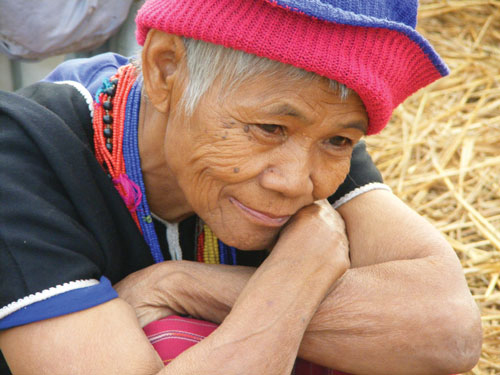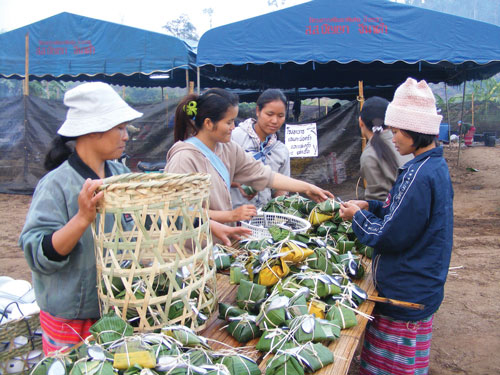Christmas with Jesús
By Fr Alo Connaughton
The author is one of two brothers who are Columbans. His older brother Father Sean worked in the Philippines for many years, in Zambales and Manila. Father Alo spent his early years as a priest in Chile.
 The first thing I need to clarify is that the Jesús I’m talking about is from Madrid and his family names are Galeote Tormo; and of course his name is pronounced ‘heSUS’. He is a doctor who got his degrees in medicine from the University of Salamanca; and he is a Franciscan priest. He has 17 years of medical practice in rural Bolivia behind him, seven of those as a hospital director.
The first thing I need to clarify is that the Jesús I’m talking about is from Madrid and his family names are Galeote Tormo; and of course his name is pronounced ‘heSUS’. He is a doctor who got his degrees in medicine from the University of Salamanca; and he is a Franciscan priest. He has 17 years of medical practice in rural Bolivia behind him, seven of those as a hospital director.
Were they difficult years? He remembers especially the tension involved in carrying out late-night emergency caesarean sections with the help of two local assistants he had trained and using power from a gasoline generator. In all these cases, day or night, he had to do everything himself, including anesthetics.
In the remote area where he worked these were matters of life or death; no other help was available. When help did become available and Bolivia began to supply its own doctors and medical staff to rural areas Father Jesús decided to respond to a request by the Franciscan superiors for volunteers for Thailand.
I had the pleasure of spending Christmas two years ago with him in the far north of Thailand, in Chiang Saen in the ‘Golden Triangle.’ This is the area along the banks of the Mekong River where Thailand, Burma and Laos meet. I had a special interest in accepting his invitation. Many of the students I teach in Bangkok come from the north of the country and I like to take any opportunity I can to get to know their background - even if it involves an almost 1,000km bus journey.
The previous year I was in the western part of the Diocese of Chiang Mai, also along the Burmese border, in the province of Mae Hong Son. Some people in one village were mildly complaining that the parish priest rarely showed up; he usually sent the assistant.
 When I made further enquiries I’ll admit I had some sympathy for the pastor. He is advanced in years and not so good on his feet. It had taken me three hours to walk up the mountains to get to the village. The real knockout came when I asked how far away the parish house was - about 200kms!
When I made further enquiries I’ll admit I had some sympathy for the pastor. He is advanced in years and not so good on his feet. It had taken me three hours to walk up the mountains to get to the village. The real knockout came when I asked how far away the parish house was - about 200kms!
The parish had 40 chapels. On that visit last year I could see no evidence that the limited pastoral attention to the area was leading to indifference. About 2,000 villagers from the hills sat under the moonlight to celebrate that Christmas Night Mass on December 24. Some of them had walked for the whole day to get there.
But let us go back to Chiang Saen. Here the Christian communities are smaller but growing. It's known as ‘hill tribe area.’ Father Jesús, on his motorbike, visited villages which have been there for many generations. The people are from different ethnic groups and there are seven different languages in common use in the parish - Thai, Burmese, Karen, Akha, Lahu, Lisu and Yao.
Many of these groups trace their roots back to China or Tibet. Fortunately most of the middle aged and all of the young understand Thai. Father Jesús still gives some medical attention but services are available in Thailand and he refers all cases of a more serious nature to a Thai doctor or to the hospital.
In this part of Thailand, where Christmas is not a big national event, the celebration takes place for these isolated communities whenever a priest is available to celebrate the Christmas Mass. It can happen any time between 23 December and New Year’s Day. The four ‘Christmases’ I attended during the six days I was there were all happy events and celebrated with the same enthusiasm as if it was ‘the real’ Christmas Day.
 It occurred to me that maybe in fact they were more aware of what was real and important about Christmas, even if they were celebrating it on 29 December. The celebration wasn’t just limited to Mass. There were games before and after, food eaten around bonfires, and gifts for everyone. Most of these were provided by pooling the simple gift that each person brought and then having a re-distribution by means of a free raffle.
It occurred to me that maybe in fact they were more aware of what was real and important about Christmas, even if they were celebrating it on 29 December. The celebration wasn’t just limited to Mass. There were games before and after, food eaten around bonfires, and gifts for everyone. Most of these were provided by pooling the simple gift that each person brought and then having a re-distribution by means of a free raffle.
The people of these villages don’t have much in material terms but what they do have in abundance is an extraordinary attention and reverence when they come together to celebrate the Eucharist. And there are other things like a real sense of excitement at the prospect of a small gift, and the ability to join with hilarity in the simplest of games. These are things that many of their more sophisticated brethren in other parts of the world lost a long time ago.
These two Christmases were simple, but on both occasions as I made my way back to Bangkok I felt that I had seen with my own eyes the ways in which what is celebrated at Christmas can really be experienced as ‘good news for the poor.’
Fr Connaughton was the previous editor of Far East, the Columban magazine in Ireland and Britain. This article appeared in The Far East, the Columban magazine in Australia and New Zealand.